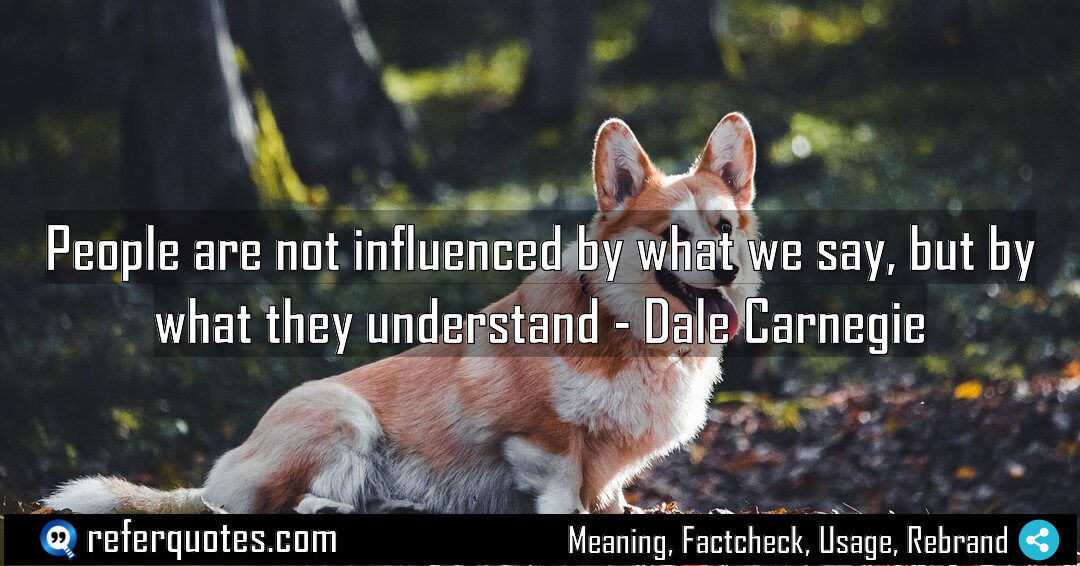You know, I’ve seen it a million times. People are not influenced by what we say… it’s a game-changer. It forces you to stop talking and start thinking about the person across from you. It’s the secret to real influence, not just making noise.
Share Image Quote:Table of Contents
Meaning
The core message is brutally simple: Communication isn’t about your intent, it’s about their interpretation. The real impact happens inside their head, not your mouth.
Explanation
Let me break this down for you. We get so caught up in crafting the perfect pitch, the most eloquent argument. We think, “If I just say it clearly enough, they’ll get it.” But that’s the trap. The real magic, the real influence, happens in the gap between your mouth and their brain. It’s not your words that matter. It’s the meaning they attach to them. Their past experiences, their biases, their fears, their hopes—that’s the filter everything you say passes through. So if they’re misunderstanding you, it’s not their fault. It’s yours for not bridging that gap. You have to step into their world.
Quote Summary
| Context | Attributes |
|---|---|
| Original Language | English (3668) |
| Category | Skill (416) |
| Topics | clarity (95), connection (265), understanding (119) |
| Literary Style | didactic (370), plain (102) |
| Emotion / Mood | calm (491), provocative (175) |
| Overall Quote Score | 86 (262) |
Origin & Factcheck
This one comes straight from “The Leader In You,” which was published in the US in 1993. It’s a book from Dale Carnegie & Associates, written by Stuart R. Levine and Michael A. Crom. People often just slap Dale Carnegie’s name on it, and while the spirit is pure Carnegie, the specific phrasing is from his successors who carried the torch.
Attribution Summary
| Context | Attributes |
|---|---|
| Author | Dale Carnegie (408) |
| Source Type | Book (4032) |
| Source/Book Name | The Leader In You (86) |
| Origin Timeperiod | Contemporary (1615) |
| Original Language | English (3668) |
| Authenticity | Verified (4032) |
Author Bio
Dale Carnegie(1888), an American writer received worldwide recognition for his influential books on relationship, leadership, and public speaking. His books and courses focus on human relations, and self confidence as the foundation for success. Among his timeless classics, the Dale Carnegie book list includes How to Win Friends and Influence People is the most influential which inspires millions even today for professional growth.
Official Website |Facebook | X | Instagram | YouTube |
Where is this quotation located?
| Quotation | People are not influenced by what we say, but by what they understand |
| Book Details | Publication Year/Date: 1993 (first edition) ISBN/Unique Identifier: 9781501181962 (Gallery Books 2017 reprint); also 9780671798093 (early Pocket Books hardcover) Last edition. Number of pages: Common reprints ~256 pages (varies by printing). |
| Where is it? | Chapter: Communication with Clarity, Approximate page from 1993 edition |
